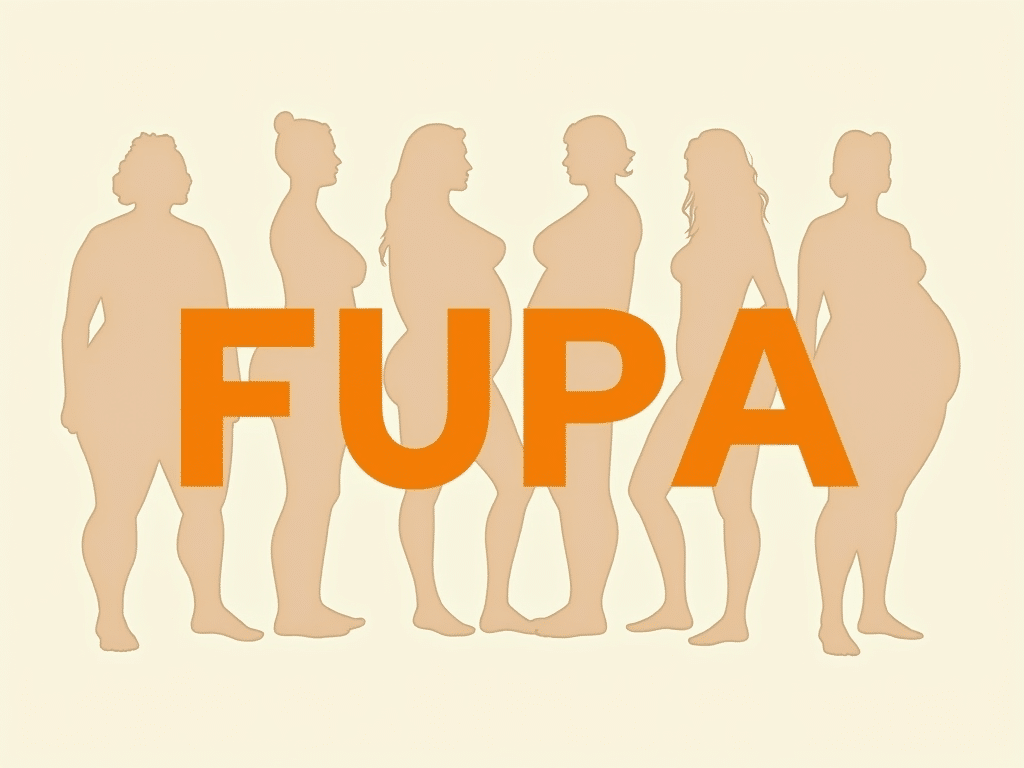The term “FUPA” has become a buzzword in conversations about body positivity and self-acceptance. It’s a term that encourages people to embrace their bodies, flaws and all. But what exactly does “FUPA” mean, and why has it become such a significant part of the body positivity movement?
Key Takeaways
| Point | Details |
|---|---|
| Meaning | “FUPA” stands for “Fat Upper Pubic Area“. |
| Usage | Describes excess fat in the lower abdomen. |
| Contexts | Body image discussions, health, and fitness. |
| Tone | Often used humorously or in body-positive contexts. |

What Does FUPA Mean?
“FUPA” is an acronym for Fat Upper Pubic Area. It refers to the layer of fat or loose skin located in the lower abdomen, just above the pubic bone. While it might sound like a medical term, “FUPA” is actually slang that has gained popularity in discussions about body image and self-love.
Origins and Evolution
The term “FUPA” has been around for a while but gained mainstream attention when celebrities like Beyoncé openly discussed embracing their post-pregnancy bodies, including their FUPAs. This sparked a wave of acceptance and body positivity across social media platforms, encouraging people to love their bodies as they are.
Historically, FUPA was often seen as something to hide or get rid of. However, with changing attitudes towards body image, it has become a symbol of self-love and acceptance. The conversation around FUPA has shifted from one of embarrassment to empowerment.
Common Contexts for Using FUPA
- Body Positivity: Celebrated as part of one’s natural body shape.
- Health and Fitness: Discussed in terms of how to manage or reduce it through lifestyle changes.
- Humor and Social Media: Used playfully in memes and online discussions.
If you’re interested in exploring more about body positivity and related slang terms, check out the Clean Girl Aesthetic or see what Periodt means!
Why is FUPA Popular?

The popularity of “FUPA” can be attributed to:
- Cultural Shifts: There’s a growing focus on body positivity and acceptance.
- Celebrity Influence: Public figures embracing their bodies have helped normalize the term.
- Relatability: Many people experience changes in their bodies due to factors like weight fluctuations, pregnancy, or genetics.
Examples of FUPA in Action
- Body Positivity: “I’m embracing my FUPA as part of who I am.”
- Fitness Discussions: “Here are some exercises to strengthen your core and manage your FUPA.”
- Social Media Humor: “FUPA squad, where you at?”
Impact on Communication and Self-Perception
Using “FUPA” in conversations can promote body positivity by encouraging people to accept and love their bodies. It shifts the focus from hiding imperfections to celebrating individuality. This change in perspective helps build self-confidence and reduces the stigma around body diversity.
Expert Tips for Embracing FUPA
- Emphasize Self-Confidence: Focus on what makes you feel good rather than societal standards.
- Avoid Negative Self-Talk: Replace critical thoughts with positive affirmations.
- Stay Informed: Keep up with evolving discussions about body positivity and self-love.
Conclusion
Understanding terms like “FUPA” enriches conversations about body image by promoting acceptance and empowerment. Embracing these concepts helps create a more inclusive and supportive environment for everyone.
For more insights into internet slang and body positivity, explore what Fanfiction means or dive into the world of Rizz. Celebrate yourself!







